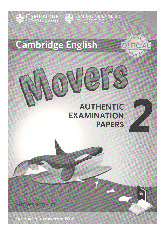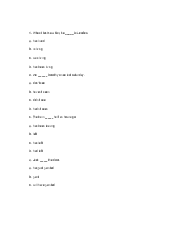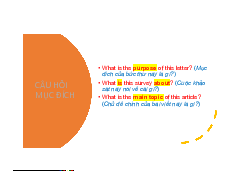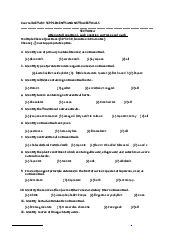























Preview text:
THE FORUM 1
Vocabulary List – Educatio n Biodiversity (noun)
Definition: The variety of plant and animal life in a particular habitat or in the world as a whole.
Context of Usage: A region's biodiversity is often used as a measure of its health.
Example Sentence: Conservationists are particularly concerned about
the loss of biodiversity in the rainforests due to deforestation. Sustainable (adjective)
Definition: Capable of being maintained at a steady level without
exhausting natural resources or causing severe ecological damage.
Context of Usage: Sustainable practices ensure that future generations
will have the necessary resources to live.
Example Sentence: Sustainable agriculture practices are essential for
maintaining food security without harming the environment. Ecosystem (noun)
Definition: A biological community of interacting organisms and their physical environment.
Context of Usage: An ecosystem can be as large as a desert or as small as a pond.
Example Sentence: The oil spill had a devastating impact on the marine ecosystem. Renewable energy (noun)
Definition: Energy from a source that is not depleted when used, such as wind or solar power.
Context of Usage: Renewable energy sources are seen as key to
reducing greenhouse gas emissions. All c pyrights Reserved o
by The Forum Education Vietnam THE FORUM 2
Example Sentence: Governments worldwide are investing in
renewable energy projects to combat climate change. Conservation (noun)
Definition: The protection and preservation of natural resources.
Context of Usage: Conservation efforts can include activities like
planting trees and protecting endangered species.
Example Sentence: Wildlife conservation is critical for ensuring that
future generations can enjoy the earth's diverse species. Carbon footprint (noun)
Definition: The total amount of greenhouse gases produced to directly
and indirectly support human activities, usually expressed in equivalent tons of carbon dioxide (CO2).
Context of Usage: People are becoming more conscious of their
carbon footprint and are taking steps to reduce it.
Example Sentence: Reducing your carbon footprint can involve simple
changes like using public transport instead of driving. Greenhouse effect (noun)
Definition: The trapping of the sun's warmth in a planet's lower
atmosphere due to the greater transparency of the atmosphere to
visible radiation from the sun than to infrared radiation emitted from the planet's surface.
Context of Usage: The greenhouse effect is necessary for life on Earth,
but its intensification is leading to global warming.
Example Sentence: The increase in greenhouse gases is enhancing the
greenhouse effect and heating the planet. Deforestation (noun)
Definition: The action of clearing a wide area of trees. All c pyrights Reserved o
by The Forum Education Vietnam THE FORUM 3
Context of Usage: Deforestation is a major problem that contributes
to the loss of biodiversity and climate change.
Example Sentence: Deforestation in the Amazon Basin poses a threat
to numerous plant and animal species. Eco-friendly (adjective)
Definition: Not harmful to the environment.
Context of Usage: Products and practices that are eco-friendly help to
reduce the negative impact on the environment.
Example Sentence: Consumers are increasingly looking for eco-
friendly options when shopping for household goods. Habitat (noun)
Definition: The natural home or environment of an animal, plant, or other organism.
Context of Usage: Protecting natural habitats helps to preserve the
species that live within them.
Example Sentence: The wetlands serve as a critical habitat for a wide variety of wildlife. Sustainability (noun)
Definition: The ability to be maintained at a certain rate or level,
especially without causing damage to the environment.
Context of Usage: Sustainability is often discussed in relation to
development, energy, and resource consumption.
Example Sentence: The city's new urban plan focuses on sustainability and aims to reduce waste. Ozone layer (noun) All c pyrights Reserved o
by The Forum Education Vietnam THE FORUM 4
Definition: A layer in the earth's stratosphere containing a high
concentration of ozone (O3), which absorbs most of the ultraviolet
radiation reaching the earth from the sun.
Context of Usage: The depletion of the ozone layer is a concern
because it protects life on Earth from harmful UV radiation.
Example Sentence: International agreements aim to protect the ozone
layer by banning the use of certainchemicals. Climate change (noun)
Definition: A change in global or regional climate patterns, particularly
a change apparent from the mid to late 20th century onwards and
attributed largely to the increased levels of atmospheric carbon dioxide
produced by the use of fossil fuels.
Context of Usage: Climate change is one of the most pressing issues of
our time, affecting weather patterns and ecosystems around the world.
Example Sentence: The international community is seeking to address
climate change through agreements like the Paris Accord. Recycling (noun)
Definition: The process of converting waste materials into new materials and objects.
Context of Usage: Recycling is a key component of modern waste
reduction and is the third component of the "Reduce, Reuse, and Recycle" waste hierarchy.
Example Sentence: By increasing recycling rates, we can lessen our
reliance on landfills and conserve natural resources. Biodegradable (adjective)
Definition: Capable of being decomposed by bacteria or other living
organisms and thereby avoiding pollution. All c pyrights Reserved o
by The Forum Education Vietnam THE FORUM 5
Context of Usage: Biodegradable packaging is becoming more popular
as an alternative to plastics that remain in the environment for hundreds of years.
Example Sentence: Many consumers now prefer to buy products with
biodegradable packaging to minimize their environmental impact. Carbon emissions (noun)
Definition: The release of carbon into the atmosphere, especially as a
result of burning fossil fuels.
Context of Usage: Carbon emissions are a significant contributor to
global warming and climate change.
Example Sentence: Governments around the world are setting targets
to reduce carbon emissions and transition to cleaner energy sources. Ecological footprint (noun)
Definition: A measure of human demand on the Earth's ecosystems,
representing the amount of natural capital used each year.
Context of Usage: The ecological footprint is often used to gauge the
impact of human activity on the planet and can be reduced by living more sustainably.
Example Sentence: Many environmentalists encourage reducing our
ecological footprint by consuming less and recycling more. Endangered species (noun)
Definition: A species of animal or plant that is at serious risk of extinction.
Context of Usage: Conservation efforts are crucial to protect
endangered species and their habitats.
Example Sentence: The giant panda was once an endangered species,
but conservation efforts have helped to increase its population. Fossil fuels (noun) All c pyrights Reserved o
by The Forum Education Vietnam THE FORUM 6
Definition: Natural fuels such as coal or gas, formed in the geological
past from the remains of living organisms.
Context of Usage: Fossil fuels have traditionally been the primary
source of energy for industrial societies but contribute significantly to carbon emissions.
Example Sentence: The shift away from fossil fuels to renewable
energy sources is essential to mitigate the effects of climate change. Organic (adjective)
Definition: Relating to or derived from living matter; (of food or
farming methods) produced or involving production without the use
of chemical fertilizers, pesticides, or other artificial chemicals.
Context of Usage: Organic farming practices are designed to promote
ecological balance and conserve biodiversity.
Example Sentence: Organic produce is often more expensive than
conventionally grown produce, but many consumers prefer it for its
environmental and health benefits. Afforestation (noun)
Definition: The process of planting large numbers of trees on land that has few or no trees on it.
Context of Usage: Afforestation can help to combat desertification and improve soil quality.
Example Sentence: The government's afforestation program aims to
plant a billion trees to increase forest cover and combat climate change. Decompose (verb)
Definition: The process by which organic substances are broken down into simpler organic matter.
Context of Usage: Decomposition is a key ecological function that
recycles nutrients back into the ecosystem. All c pyrights Reserved o
by The Forum Education Vietnam THE FORUM 7
Example Sentence: Composting relies on the natural process by which
organic materials decompose and become nutrient-rich soil. Emission (noun)
Definition: The production and discharge of something, especially gas or radiation.
Context of Usage: Emissions from industrial processes are regulated to
protect air quality and reduce greenhouse gases.
Example Sentence: The new factory is required to use advanced
technology to control emissions of pollutants. Habitat destruction (noun)
Definition: The process in which natural habitat is rendered
functionally unable to support the species present.
Context of Usage: Habitat destruction is a significant threat to wildlife
and is often caused by human activities such as logging and urban expansion.
Example Sentence: Many species are facing extinction due to rampant habitat destruction.
Non-renewable resources (noun)
Definition: Resources that cannot be readily replaced by natural means
at a quick enough pace to keep up with consumption.
Context of Usage: Non-renewable resources, such as coal and oil, have
been the main sources of energy, but they are finite and polluting.
Example Sentence: The world is gradually transitioning to renewable
energy sources to reduce its dependence on non-renewable resources. Overpopulation (noun)
Definition: The condition of being populated with excessively large
numbers that the environment or infrastructure cannot sustainably support.
Context of Usage: Overpopulation can lead to environmental
degradation as the demand for resources exceeds the supply.
Example Sentence: Overpopulation in urban areas is putting a strain
on water and sanitation systems. Pollutant (noun) All c pyrights Reserved o
by The Forum Education Vietnam THE FORUM 8
Definition: A substance that pollutes something, especially water or the atmosphere.
Context of Usage: Factories, cars, and agriculture can all release
pollutants into the environment.
Example Sentence: Regulations aim to reduce the amount of
pollutants entering our rivers and streams to protect aquatic life. Reforestation (noun)
Definition: The natural or intentional restocking of existing forests and
woodlands that have been depleted, usually through deforestation.
Context of Usage: Reforestation can restore ecosystems, improve air
quality, and combat climate change.
Example Sentence: Reforestation efforts in the region have helped to
restore habitats for many endangered species. Renewable resource (noun)
Definition: A resource which can be used repeatedly and replaced
naturally, such as solar, wind, and tidal energy.
Context of Usage: Renewable resources offer a sustainable alternative to fossil fuels.
Example Sentence: The country's energy policy focuses on the
development of renewable resources to provide cleaner power. Soil erosion (noun)
Definition: The wearing away of topsoil by the natural physical forces
of water and wind or through forces associated with farming activities such as tillage.
Context of Usage: Soil erosion can lead to decreased agricultural
productivity and increased runoff of sediments into waterways.
Example Sentence: Soil erosion is a serious problem that can be
addressed by planting vegetation and using no-till farming practices. Toxic waste (noun)
Definition: Waste material that can cause death, injury, or birth defects to living creatures.
Context of Usage: Toxic waste disposal requires careful handling to
prevent environmental contamination. All c pyrights Reserved o
by The Forum Education Vietnam THE FORUM 9
Example Sentence: The illegal dumping of toxic waste has
contaminated the local groundwater supplies. Urbanization (noun)
Definition: The process by which towns and cities are formed and
become larger as more people begin living and working in central areas.
Context of Usage: Urbanization is often associated with a number of
environmental issues, including air pollution and the urban heat island effect.
Example Sentence: Urbanization has accelerated in recent decades,
leading to the expansion of cities into previously rural areas. Watershed (noun)
Definition: An area or ridge of land that separates waters flowing to
different rivers, basins, or seas.
Context of Usage: Watersheds are important for managing water
resourcesin an ecosystem and sustaining biodiversity.
Example Sentence: The new dam project has raised concerns about its
impact on the local watershed and surrounding communities. Xeriscaping (noun)
Definition: A style of landscape design requiring little or no irrigation
or other maintenance, used in arid regions.
Context of Usage: Xeriscaping is becoming more popular as a water
conservation measure in drought-prone areas.
Example Sentence: Homeowners are turning to xeriscaping to reduce
their water usage and maintain an attractive yard. Zero-emissions (adjective)
Definition: A state in which no carbon dioxide or other greenhouse gases are produced.
Context of Usage: Zero-emissions vehicles and technologies are crucial
for achieving carbon neutrality.
Example Sentence: The city has introduced a fleet of zero-emissions
buses to reduce air pollution. Mitigation (noun) All c pyrights Reserved o
by The Forum Education Vietnam THE FORUM 10
Definition: The action of reducing the severity, seriousness, or painfulness of something.
Context of Usage: Mitigation strategies are essential in addressing the
consequences of climate change.
Example Sentence: Coastal cities are investing in flood defense systems
as a mitigation measure against rising sea levels. Photosynthesis (noun)
Definition: The process by which green plants and some other
organisms use sunlight to synthesize foods from carbon dioxide and water.
Context of Usage: Photosynthesis in plants plays a vital role in
absorbing carbon dioxide from the atmosphere.
Example Sentence: Teaching children about photosynthesis helps
them understand the importance of plants to our planet's ecology. Upcycling (verb)
Definition: Reuse (discarded objects or material) in such a way as to
create a product of higher quality or value than the original.
Context of Usage: Upcycling is part of a growing trend to reduce waste
and promote sustainable consumption.
Example Sentence: The artist's upcycled sculptures turn everyday trash into valuable artwork. Invasive species (noun)
Definition: Non-native species that spread from the point of
introduction and become abundant, often causing harm to the
environment, economy, or human health.
Context of Usage: Invasive species can outcompete native species and disrupt local ecosystems.
Example Sentence: The introduction of invasive species has led to the
decline of several indigenous plant and animal populations. Aquifer (noun)
Definition: A body of permeable rock that can contain or transmit groundwater. All c pyrights Reserved o
by The Forum Education Vietnam THE FORUM 11
Context of Usage: Aquifers are a critical source of fresh water for
many communities, but can become depleted or polluted.
Example Sentence: Overdrawing water from the aquifer has resulted in
a drop in the water table and springs drying up. All c pyrights Reserved o
by The Forum Education Vietnam THE FORUM 12
Vocabulary List – Educatio n Pedagogy (noun)
Definition: The method and practice of teaching, especially as an
academic subject or theoretical concept.
Context of Usage: Pedagogy is central to the discussions on how
education should be delivered to achieve the best learning outcomes.
Example Sentence: The university's education department is at the
forefront of research in innovative pedagogy. Curriculum (noun)
Definition: The subjects comprising a course of study in a school or college.
Context of Usage: A well-designed curriculum is crucial for providing a comprehensive education.
Example Sentence: The national curriculum was revised to include
more emphasis on critical thinking skills. Literate (adjective)
Definition: Able to read and write; having knowledge in a specified area.
Context of Usage: Being literate in today's world also means having digital literacy skills.
Example Sentence: The literacy program aims to ensure that all
children are literate by the end of primary school. Vocational (adjective)
Definition: Relating to an occupation or employment.
Context of Usage: Vocational training is seen as a practical alternative
to academic study for many students. All c pyrights Reserved o
by The Forum Education Vietnam THE FORUM 13
Example Sentence: The government is increasing funding for
vocational schools to support the development of skilled trades. Scholarship (noun)
Definition: Academic study or achievement; learning at a high level.
Also, a grant or payment made to support a student's education,
awarded on the basis of academic or other achievement.
Context of Usage: Scholarships can provide opportunities for students
who might otherwise be unable to afford higher education.
Example Sentence: She won a scholarship to study law at a prestigious university. Cognitive (adjective)
Definition: Relating to cognition, which is the mental action or process
of acquiring knowledge and understanding through thought, experience, and the senses.
Context of Usage: Cognitive development is a crucial aspect of early childhood education.
Example Sentence: The curriculum is designed to enhance students'
cognitive abilities through problem-solving and analytical tasks. Syllabus (noun)
Definition: An outline of the subjects in a course of study or teaching.
Context of Usage: The syllabus for the course includes both theoretical and practical elements.
Example Sentence: Students should review the syllabus to understand
the expectations and requirements of the course. Academic performance (noun)
Definition: The extent to which a student, teacher, or institution has
achieved their short or long-term educational goals. All c pyrights Reserved o
by The Forum Education Vietnam THE FORUM 14
Context of Usage: Academic performance is often measured through assessments and exams.
Example Sentence: The school implemented a new study program to
improve students' academic performance. Illiteracy (noun)
Definition: The inability to read or write.
Context of Usage: Combatting illiteracy is a priority for many
international educational organizations.
Example Sentence: Adult illiteracy rates have decreased globally, but
there is still significant work to be done. Tertiary education (noun)
Definition: Education at the university or college level.
Context of Usage: Tertiary education is considered important for the
development of a highly skilled workforce.
Example Sentence: The government is seeking to increase access to
tertiary education through grants and loans. Inclusive education (noun)
Definition: A system of education where all students, regardless of
their physical or intellectual abilities, are taught in the same classroom environment.
Context of Usage: Inclusive education aims to remove barriers and
ensure that every child has equal access to learning opportunities.
Example Sentence: The school's inclusive education program has been
praised for its support of students with special needs. Literacy rate (noun)
Definition: The percentage of people who are able to read and write in a given population. All c pyrights Reserved o
by The Forum Education Vietnam THE FORUM 15
Context of Usage: Literacy rates are often used as an indicator of a
country's educational development.
Example Sentence: The nation's literacy rate has improved dramatically over the past fifty years. Extracurricular (adjective)
Definition: An extracurricular activity is pursued in addition to the normal course of study.
Context of Usage: Extracurricular activities are recognized for
contributing to the overall development of students beyond academics.
Example Sentence: Her involvement in extracurricular activities like
the debate club and the basketball team helped her develop leadership skills. Plagiarism (noun)
Definition: The practice of taking someone else's work or ideas and
passing them off as one's own.
Context of Usage: Academic institutions have strict policies against
plagiarism to ensure that students submit original work.
Example Sentence: The university uses software to detect plagiarism in
students' essays and research papers. Distance learning (noun)
Definition: A way of studying where tuition is carried out over the
Internet or by post, without the need for physical attendance at a school or college.
Context of Usage: Distance learning has become increasingly popular
due to its flexibility and accessibility.
Example Sentence: Many working professionals prefer distance
learning programs to further their education without disrupting their careers. All c pyrights Reserved o
by The Forum Education Vietnam THE FORUM 16 Multidisciplinary (adjective)
Definition: Combining or involving several academic disciplines or
professional specializations in an approach to a topic or problem.
Context of Usage: A multidisciplinary approach to education
encourages students to look at issues from various perspectives.
Example Sentence: The course offers a multidisciplinary curriculum,
including elements from psychology, sociology, and economics. Assessment (noun)
Definition: The evaluation or estimation of the nature, quality, or
ability of someone or something.
Context of Usage: Assessments in education are used to measure
students' understanding and mastery of the material.
Example Sentence: The teacher used a variety of assessments, such as
tests, quizzes, and presentations, to evaluate student learning. Literacy (noun)
Definition: The ability to read and write; competence or knowledge in a specified area.
Context of Usage: Literacy is the first step towards learning and is
essential for individual and societal development.
Example Sentence: The NGO's mission is to improve literacy among
children in underserved communities. Seminar (noun)
Definition: A class at a college or university in which a topic is
discussed by a teacher and a small group of students.
Context of Usage: Seminars often require active participation and are
an effective way to delve deeper into academic subjects. All c pyrights Reserved o
by The Forum Education Vietnam THE FORUM 17
Example Sentence: During the seminar, each student presented their
research findings to the group for discussion.
Undergraduate (noun & adjective)
Definition: A university student who has not yet received a first degree
(noun); relating to studies that lead to a bachelor's degree (adjective).
Context of Usage: Undergraduate courses lay the foundation for
further specialization at the postgraduate level.
Example Sentence: He is studying biology as an undergraduate at the university.
Postgraduate (noun & adjective)
Definition: A student who has completed an undergraduate degree and
is studying for a higher degree such as a master's or PhD (noun);
relating to studies undertaken after earning a bachelor's degree (adjective).
Context of Usage: Postgraduate education is essential for those
pursuing academic or research careers.
Example Sentence: After completing her undergraduate degree, she
decided to pursue postgraduate studies in environmental science. Thesis (noun)
Definition: A statement or theory that is put forward as a premise to
be maintained or proved; also, a long essay or dissertation involving
personal research, written by a candidate for a college degree.
Context of Usage: Writing a thesis is a significant part of completing a postgraduate degree.
Example Sentence: His thesis explored the relationship between social
media use and mental health among teenagers. Compulsory education (noun) All c pyrights Reserved o
by The Forum Education Vietnam THE FORUM 18
Definition: A period of education that is required of all people and is imposed by the government.
Context of Usage: Compulsory education laws ensure that all children
have access to a basic education.
Example Sentence: Compulsory education up to the age of 16 has
contributed to the eradication of child labor in many countries. Academic journal (noun)
Definition: A periodical publication in which scholarship relating to a
particular academic discipline is published.
Context of Usage: Academic journals are forums where researchers
publish their findings and contribute to the knowledge base of their field.
Example Sentence: She was thrilled when her article was accepted for
publication in a leading academic journal. All c pyrights Reserved o
by The Forum Education Vietnam THE FORUM 19
Vocabulary List – Technology Innovate (verb)
Definition: To make changes in something established, especially by
introducing new methods, ideas, or products.
Context of Usage: To innovate is crucial for companies that want to
stay competitive in the market.
Example Sentence: The tech company is known for innovating rapidly
to stay ahead of industry trends. Automation (noun)
Definition: The use of largely automatic equipment in a system of
operation, such as manufacturing or other production processes.
Context of Usage: Automation can lead to higher production rates and
increased productivity in various industries.
Example Sentence: Automation in car manufacturing has not only
improved efficiency but also reduced the risk of injury to workers. Cybersecurity (noun)
Definition: The practice of protecting systems, networks, and
programs from digital attacks.
Context of Usage: Cybersecurity measures are essential to prevent sensitive data breaches.
Example Sentence: After a major data breach, the company invested
heavily in cybersecurity to protect its customers' information.
Artificial Intelligence (AI) (noun)
Definition: The simulation of human intelligence processes by
machines, especially computer systems. All c pyrights Reserved o
by The Forum Education Vietnam THE FORUM 20
Context of Usage: Artificial Intelligence is a field that has seen
significant growth in recent years, with applications in various domains.
Example Sentence: Artificial Intelligence is transforming industries by
providing solutions that can analyze data and learn from it. Blockchain (noun)
Definition: A system in which a record of transactions made in
cryptocurrency is maintained across several computers that are linked in a peer-t - o peer network.
Context of Usage: Blockchain technology is praised for its ability to
offer secure and transparent transactional records.
Example Sentence: The financial industry is exploring blockchain as a
way to reduce fraud and operational costs. Cloud computing (noun)
Definition: The practice of using a network of remote servers hosted
on the Internet to store, manage, and process data, rather than a local
server or a personal computer.
Context of Usage: Cloud computing allows for flexible access to data
and applications from anywhere in the world.
Example Sentence: Many businesses are moving to cloud computing
to enhance collaboration and data accessibility. Digital literacy (noun)
Definition: The ability to effectively find, identify, evaluate, and use
information through digital platforms.
Context of Usage: Digital literacy is becoming increasingly important
as more aspects of our lives move online.
Example Sentence: Schools are incorporating digital literacy into their
curricula to prepare students for the modern workforce. All c pyrights Reserved o
by The Forum Education Vietnam THE FORUM 21 E-commerce (noun)
Definition: Commercial transactions conducted electronically on the Internet.
Context of Usage: E-commerce has revolutionized the way we shop,
offering convenience and a wide range of choices.
Example Sentence: The rise of e-commerce platforms has made it
possible for small businesses to reach a global audience.
Internet of Things (IoT) (noun)
Definition: The interconnection via the Internet of computing devices
embedded in everyday objects, enabling them to send and receive data.
Context of Usage: The Internet of Things has the potential to increase
efficiency in our daily lives through smart devices.
Example Sentence: IoT devices, like smart thermostats, can help
reduce energy consumption by adjusting the temperature based on user behavior. Virtual reality (VR) (noun)
Definition: A simulated experience that can be similar to or completely
different from the real world.
Context of Usage: Virtual reality is used for entertainment, education, and training purposes.
Example Sentence: Virtual reality technology has become an effective
tool for simulating real-life scenarios in pilot training programs. Algorithm (noun)
Definition: A process or set of rules to be followed in calculations or
other problem-solving operations, especially by a computer.
Context of Usage: Algorithms play a crucial role in how data is
processed and decisions are made in software applications. All c pyrights Reserved o
by The Forum Education Vietnam THE FORUM 22
Example Sentence: Search engines use complex algorithms to deliver
the most relevant results to users' queries. Data mining (noun)
Definition: The practice of examining large databases in order to generate new information.
Context of Usage: Data mining can help businesses uncover patterns
and relationships intheir data to improve decision-making.
Example Sentence: Data mining techniques have revealed significant
customer insights, leading to more targeted marketing strategies. Machine learning (noun)
Definition: A type of artificial intelligence that enables computers to
learn from and make decisions based on data.
Context of Usage: Machine learning is at the heart of many predictive
models and personalization systems.
Example Sentence: Machine learning algorithms are used to
recommend products to users on e-commerce sites based on their browsing history. Networking (noun)
Definition: The interconnection of multiple devices, also known as
hosts, that are connected using multiple paths for the purpose of
sending/receiving data or media.
Context of Usage: Networking is essential for the exchange of data
between computers on a shared or different networks.
Example Sentence: Effective networking is crucial for the functionality
of the internet and for the communication between millions of devices worldwide. User interface (UI) (noun) All c pyrights Reserved o
by The Forum Education Vietnam THE FORUM 23
Definition: The means by which the user and a computer system
interact, in particular the use of input devices and software.
Context of Usage: A well-designed user interface can greatly enhance
the user's experience with a product or system.
Example Sentence: The software company spent considerable
resources improving the user interface to make their product more intuitive and user-friendly. Augmented reality (AR) (noun)
Definition: An enhanced version of reality created by the use of
technology to overlay digital information on an image of something
being viewed through a device (such as a smartphone camera).
Context of Usage: Augmented reality has applications in gaming,
education, and even medical training.
Example Sentence: Augmented reality apps can project a 3D model of
historical sites onto the current view, enriching the tourism experience. Big data (noun)
Definition: Extremely large data sets that may be analyzed
computationally to reveal patterns, trends, and associations, especially
relating to human behavior and interactions.
Context of Usage: Big data analytics is a powerful tool for businesses
and governments to gain insights and improve decision-making.
Example Sentence: Big data is used to predict consumer buying habits,
helping companies to stock products more efficiently. Cryptocurrency (noun)
Definition: A digital currency in which transactions are verified and
records maintained by a decentralized system using cryptography,
rather than by a centralized authority. All c pyrights Reserved o
by The Forum Education Vietnam THE FORUM 24
Context of Usage: Cryptocurrency promises a future with greater
financial privacy and freedom from traditional banking systems.
Example Sentence: Bitcoin, the first cryptocurrency, has paved the way
for hundreds of similar digital currencies. Disruptive technology (noun)
Definition: An innovation that significantly alters the way that
consumers, industries, or businesses operate.
Context of Usage: Disruptive technology can create entirely new
markets and value networks, eventually displacing established market- leading firms and products.
Example Sentence: Ride-sharing apps were a disruptive technology
that changed the landscape of urban transportation. Internet Protocol (IP) (noun)
Definition: The method by which data is sent from one computer to another on the Internet.
Context of Usage: Each computer (known as a host) on the Internet
has at least one IP address that uniquely identifies it from all other computers on the Internet.
Example Sentence: When you access a website, your computer uses
the Internet Protocol to communicate with the server where the website is hosted. All c pyrights Reserved o
by The Forum Education Vietnam




